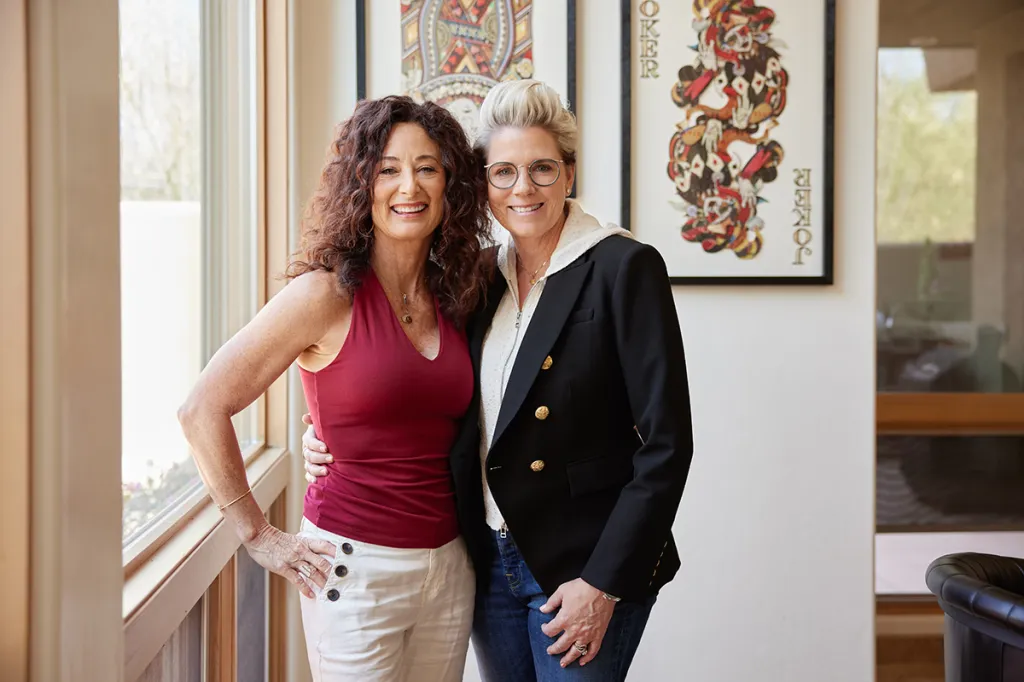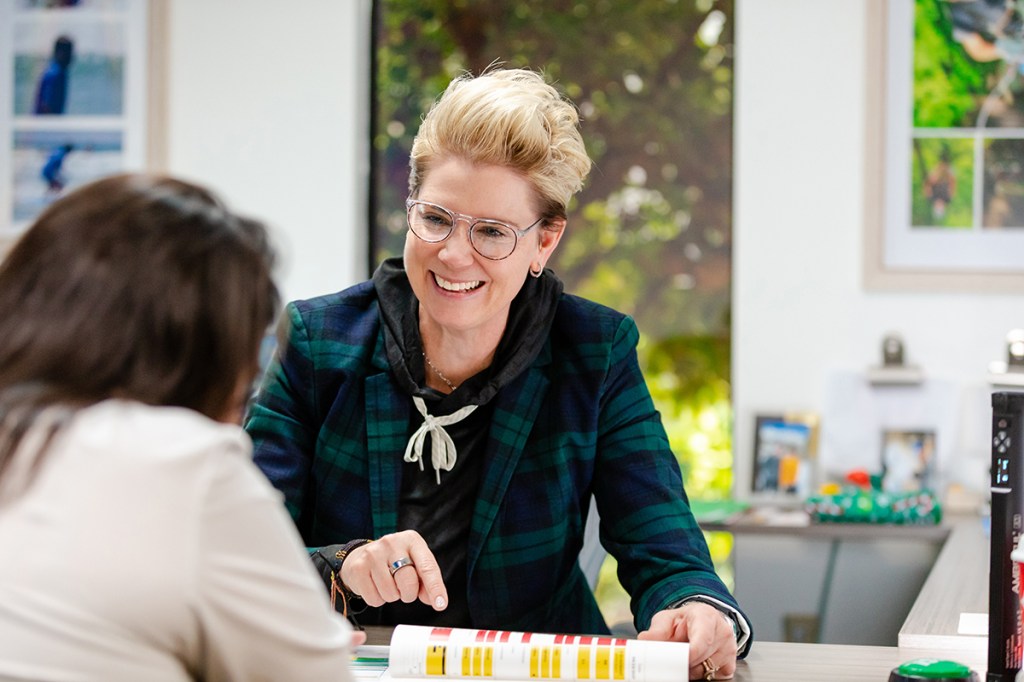Mum created loneliness health platform after trans daughter’s death

Pyx Health was founded in 2017 by Cindy and Anne Jordan. (Adam Riding/Pyx Health)
Cindy Jordan was devastated after chronic loneliness played a huge part in her trans non-binary stepdaughter’s death, but she channelled the pain into helping others.
Describing herself as an “internal optimist”, Cindy tells PinkNews she felt compelled to launch healthcare tech company, Pyx Health, following the agony stepdaughter Riley faced.
Pyx is a technology platform that offers self-help, positive psychology and a number of resources. It now serves about 10 million people across the US, and uses peer navigators who are matched with users through shared experiences.
Cindy and her wife Anna lost Riley three years ago, following a struggle with chronic loneliness, dating back to 2017 when the youngster had “a horrible year with mental health”.
Despite having “all the family love she could possible accept”, Riley died through substance abuse brought on by her loneliness.

Numerous studies have shown that substance abuse is much higher among members of LGBTQ+ community than their heterosexual peers.
Cindy says Riley talked frequently about being lonely and would often say: “No one gets it. No one understands my plight.”
She felt very, misunderstood, Cindy adds.
The last text Riley sent before her death read: “I’m so lonely.”
This led her stepmum to research loneliness, a social pain that wasn’t spoken about much before the COVID-19 lockdowns. She found there was a gap in the market for loneliness aids in the US, so founded Pyx Health.
“When you’re talking about something as sensitive and as pervasive as loneliness, you need to get people involved,” she says.
One of the signs of chronic loneliness is being up in the middle of the night, Cindy says. Pyx responds by offering answers and resources. Sometimes appointments can even be set up at late hours.
Research by Just Like Us, the LGBTQ+ young people’s charity, has found that queer youngsters are twice as likely to feel lonely as their straight counterparts.

A majority of the people using the platform identify as transgender.
“Trans folks in particular spend a lot of time living in otherness. Therefore, they get farther and farther away [from society, family and friends]. That’s why there’s such a high rate of chronic loneliness inside the LGBTQ+ community, trans in particular,” Cindy says, before adding that trans people have been singled out in politics.
Chronic loneliness, Cindy explains, is when the brain has rewired in the frontal lobe, convincing the person that no one and nothing can help. “That’s why [it] is so deadly, because folks stop taking their medicine and engaging with family and community. It’s more deadly than obesity and alcoholism put together in our society.”
Technology can help by providing a connection with others but Cindy is adamant that when people are in a state of chronic loneliness, one-on-one connection is key.
‘It’s not just about sending a text’
“It’s not just about sending a text. We feel like if we’ve sent a text, we’ve done a [meaningful] engagement with people we love – and that’s not true.
“There’s no substitute for human connection. There [are] cues, feelings, there’s energy between us that absolutely cannot be replaced through a text or even through [a] video.”
There’s “still a huge epidemic inside the LGBTQ+ community around chronic loneliness,” despite attitudes being more accepting than they were decades ago.
Cindy describes the platform as Riley’s legacy, which she hopes will prevent families and people suffering the “worst outcome possible”.







